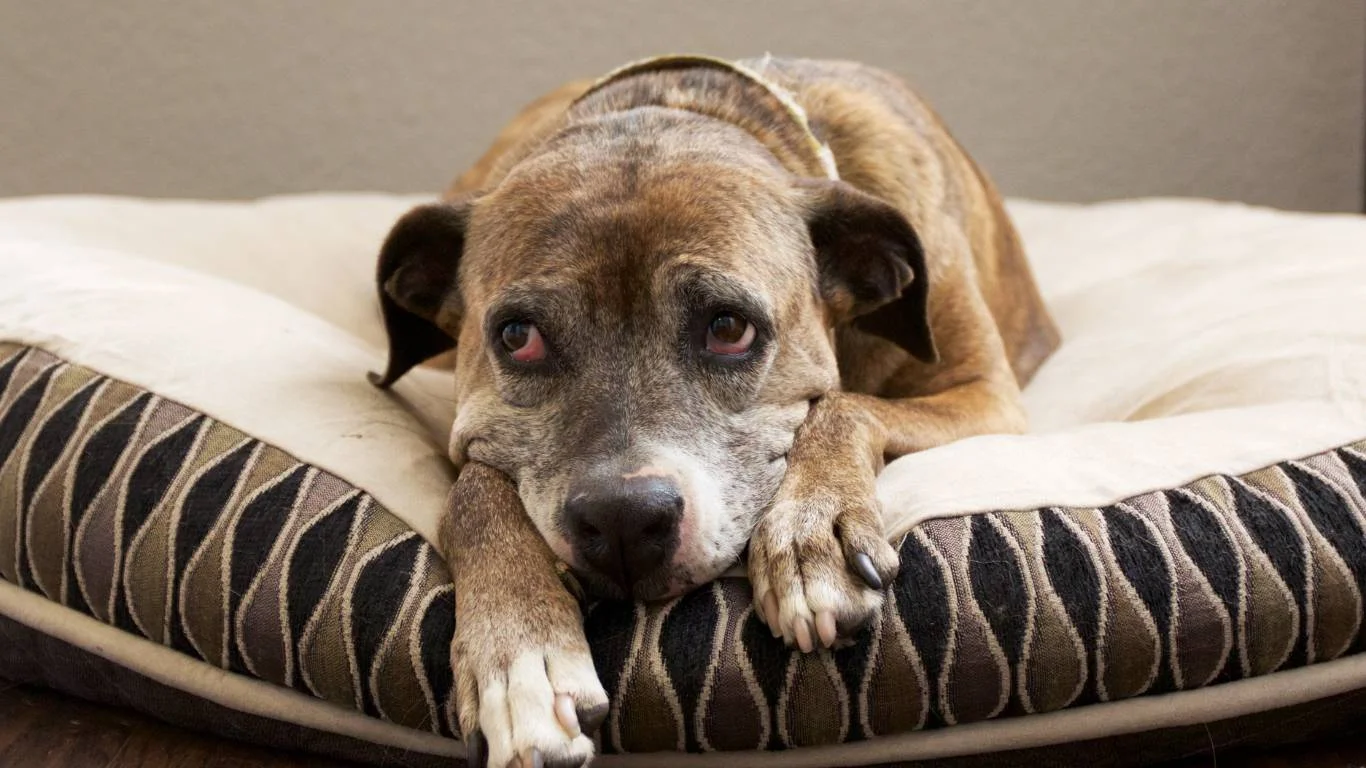Ultimate Guide to How to Strengthen a Dog’s Immune System Naturally Fast
When it comes to our furry friends, one of the best gifts we can give them is a strong, healthy immune system. As a Veterinary Assistant with a focus on nutrition, I’ve seen firsthand how boosting a dog’s natural defenses not only helps them fight off illness but also improves their overall quality of life. So, if you’ve ever wondered how to strengthen a dog’s immune system naturally, you’re in the right place. No expensive supplements or confusing treatments—just practical, tried-and-true ways that really work.
Understanding Your Dog’s Immune System

Before diving into the nitty-gritty of immune support, it’s important to understand what the immune system actually does. Think of it as your dog’s personal bodyguard—always on alert, protecting them from harmful invaders like bacteria, viruses, and parasites. But just like us, their immune system can get overwhelmed or weakened by stress, poor diet, or illness.
One thing I often remind pet parents during my work is that the immune system is complex and interconnected with every part of the body. So strengthening it isn’t about quick fixes; it’s about consistent care and the right lifestyle choices.
The Role of Nutrition in Immune Health
Nutrition is absolutely foundational when it comes to boosting immunity naturally. In my experience, dogs on a balanced, nutrient-rich diet show far fewer infections and recover faster when they do get sick. Here’s why:
- Antioxidants like vitamins C and E help protect cells from damage caused by free radicals.
- Essential fatty acids such as Omega-3s support the skin barrier and reduce inflammation.
- Protein provides the building blocks for immune cells and antibodies.
- Probiotics and prebiotics encourage healthy gut bacteria, which play a huge role in immune function.
When I assist in clinics, I often recommend whole foods over supplements when possible. Real chicken, fish, fresh veggies, and carefully selected grains or alternatives create a robust immune response better than isolated vitamins. Plus, dogs tend to enjoy their meals more!
Stress Management: The Overlooked Immune Booster
Another key factor that I’ve noticed many dog owners underestimate is the impact of stress on immunity. Just like us, dogs can experience anxiety, fear, or excitement, all of which can either boost or weaken their immune system. Chronic stress is a silent enemy.
Simple steps to reduce stress include:
- Consistent daily exercise tailored to your dog’s breed and age.
- Regular socialization with other dogs and humans, but at a pace they’re comfortable with.
- Creating a safe, quiet space at home where your dog can retreat.
- Using calming supplements or pheromone diffusers if recommended by your vet.
From my personal experience, dogs who get plenty of mental and physical stimulation tend to have stronger immune responses, which makes managing minor health hiccups much easier.
Practical Ways to Strengthen a Dog’s Immune System Naturally

Okay, now that we know why immunity matters and what affects it, let’s get to some straightforward, natural strategies to boost your dog’s defenses:
1. Feed a Nutrient-Dense Diet
As I mentioned earlier, food is medicine. Avoid fillers, artificial preservatives, and low-quality kibble. Look for foods rich in:
- Lean proteins
- Fresh vegetables like carrots, spinach, and pumpkin
- Healthy fats such as fish oil or flaxseed
- Natural sources of vitamins and minerals
2. Keep Up with Regular Exercise
Movement stimulates immune cells and promotes overall health. Even a short daily walk or playtime in the yard can make a big difference.
3. Ensure Proper Hydration
Water is crucial for all bodily functions, including immune response. Make sure your dog always has access to clean, fresh water.
4. Maintain Regular Vet Check-Ups
Prevention is better than cure. Early detection of potential health issues can save your dog from bigger problems down the line.
5. Prioritize Quality Sleep and Rest
Sleep is often overlooked when talking about immunity, but trust me, it’s a game-changer. During rest, your dog’s body works hard to repair cells and strengthen immune defenses. From my time assisting in vet clinics, I’ve noticed dogs that have disrupted or insufficient sleep tend to get sick more often or take longer to bounce back.
Creating a cozy, quiet sleeping spot free from distractions can make all the difference. Whether it’s a soft bed in a calm corner or a crate that feels like a den, make sure your dog has a safe place to recharge.
6. Incorporate Immune-Supportive Supplements Wisely
While food should be the primary source of nutrients, some natural supplements can offer extra support—especially if your dog is older, recovering from illness, or has specific health concerns. Here are a few I’ve recommended after consulting with vets:
- Probiotics: These friendly bacteria help balance the gut flora, which is directly linked to immune health. I’ve seen dogs with digestive issues improve dramatically with a good probiotic.
- Colostrum: This is the nutrient-rich first milk from mother dogs and cows. It contains antibodies that can give an immune boost.
- Medicinal mushrooms: Varieties like Reishi and Shiitake are becoming popular for their immune-modulating properties. Just ensure you use vet-approved brands.
- Turmeric: Known for its anti-inflammatory benefits, turmeric can help reduce chronic inflammation that might otherwise stress the immune system.
Always check with your vet before starting any supplement. I can’t stress this enough—what’s safe for one dog might not be for another.
Environmental Factors That Affect Your Dog’s Immune System

The world outside your door plays a big role in your dog’s immune health. From pollution to allergens, the environment constantly challenges their defenses. When I worked at shelters, I saw how dogs coming from stressful, dirty places often had weaker immune systems and more infections. So, creating a healthy home environment is key.
Keep Their Space Clean and Allergen-Free
Regularly washing bedding, vacuuming floors, and keeping food bowls spotless helps reduce exposure to bacteria and mold that can weaken immunity. If your dog is prone to allergies, consult your vet about environmental allergens like pollen or dust mites.
Limit Exposure to Toxins
Household chemicals, pesticides, and even certain cleaning products can harm your dog’s immune system. Opt for pet-safe products and be mindful of what they sniff or lick during walks. This kind of vigilance has saved many pups I’ve cared for from mysterious health flare-ups.
Fresh Air and Sunshine
Natural sunlight is a great source of vitamin D, which supports immune function. Plus, outdoor time allows your dog to explore, get exercise, and lower stress. Just be mindful of extreme weather and provide shade or shelter as needed.
My Personal Tips for Building Long-Term Immune Health

After years of working closely with dogs, I’ve learned that how to strengthen a dog’s immune system naturally is less about grand gestures and more about consistent habits. Here are some nuggets I pass along to pet parents who want to keep their dogs thriving:
- Listen to your dog. Notice changes in behavior, appetite, or energy—they often hint at immune struggles before illness shows.
- Keep things routine. Dogs thrive on predictability, which reduces stress and keeps immune function steady.
- Rotate proteins in their diet. This avoids food sensitivities and introduces a wider range of nutrients.
- Use natural treats sparingly. Too many treats, especially low-quality ones, can do more harm than good.
- Stay proactive with vet visits. Don’t wait for symptoms—regular wellness exams catch problems early.
One story that sticks with me is a senior lab mix I cared for who was constantly battling infections. After switching to a nutrient-rich homemade diet and adding gentle daily exercise, her immune health improved so much that she stayed infection-free for the first time in years. Moments like that remind me why natural immune support is worth every bit of effort.
When to Seek Professional Help
Even with the best care, sometimes your dog’s immune system needs a helping hand from a vet. If you notice frequent infections, unexplained weight loss, or persistent lethargy, don’t hesitate to get a professional opinion. Immune-related conditions can be complex, and early diagnosis makes treatment easier and more effective.
Remember, strengthening your dog’s immune system naturally is a journey, not a quick fix. With patience, love, and the right strategies, you’re setting your pup up for a healthier, happier life.
Common Myths About Strengthening a Dog’s Immune System Naturally

Over the years, I’ve encountered plenty of misconceptions around how to strengthen a dog’s immune system naturally. Sorting fact from fiction can be tricky, especially when you’re trying to do the best for your pet. Let me share a few myths I’ve heard a lot—and what the reality really is.
Myth 1: “More Supplements Means Stronger Immunity”
This one’s common. It’s tempting to think loading up on vitamins and powders will make your dog invincible. But in reality, over-supplementing can do more harm than good. I’ve seen cases where dogs developed digestive upset or even allergic reactions because owners gave them too many supplements at once. Immune health thrives on balance—not excess.
Myth 2: “If My Dog Isn’t Sick, Their Immune System Is Perfect”
Just because your dog seems healthy doesn’t mean their immune system is running at full speed. Some dogs may hide symptoms until a problem becomes serious. Regular wellness checks and monitoring subtle changes in behavior or appetite can give you clues about their immune status before illness strikes.
Myth 3: “Natural = Always Safe”
Natural remedies can be fantastic, but “natural” doesn’t automatically mean risk-free. Certain herbs, foods, or supplements might interact with medications or cause allergies. Always double-check with your vet before introducing something new—especially if your dog has underlying health issues.
How Lifestyle Choices Impact Your Dog’s Immunity

From my daily work and personal experience, the way we live with our dogs directly shapes their immune health. Small lifestyle tweaks often yield big results.
Consistent Exercise Builds a Resilient Immune System
We’ve touched on exercise before, but it bears repeating. Moderate physical activity encourages circulation, helps flush toxins, and even reduces inflammation. Whether it’s a brisk walk, a game of fetch, or agility training, staying active is crucial. I once had a shy rescue dog who blossomed after regular outdoor play, and his improved immunity was clear in fewer colds and infections.
Stress Reduction Is Key to Immune Balance
Stress hormones can suppress immune function, and chronic stress is a silent immune system enemy. Creating calm routines, providing mental stimulation through puzzles or training, and ensuring your dog feels secure can dramatically lower stress levels. I often suggest incorporating massage or gentle grooming sessions to soothe anxious dogs—simple but effective.
Social Interaction and Mental Engagement Matter
Dogs are social creatures, and isolation can negatively affect their immune health. Encouraging safe playdates, regular walks in new environments, and positive interactions with humans and other dogs stimulates both mind and body. This, in turn, keeps the immune system active and ready to defend.
Final Thoughts: Your Role in Supporting Immune Health
Looking back on my years working with dogs, it’s clear that natural immune support is a holistic effort. Food, exercise, environment, and emotional well-being all weave together to build strong defenses. Remember, there’s no magic pill—just love, attention, and informed care.
Each dog is unique, so take time to learn their specific needs and patterns. Celebrate small wins like better energy or shinier coats—they often signal that their immune system is thriving. And when in doubt, your veterinarian is your best ally for tailored advice.
References
- https://www.aspca.org/
- https://www.avma.org/
- https://www.vetmed.ucdavis.edu/
- https://www.gastro.org/
Disclaimer
The information provided here is based on my experience as a Veterinary Assistant with a focus on nutrition and should not replace professional veterinary advice. Every dog is different, and if you notice any health concerns, please consult your veterinarian for a thorough evaluation and personalized treatment plan.





